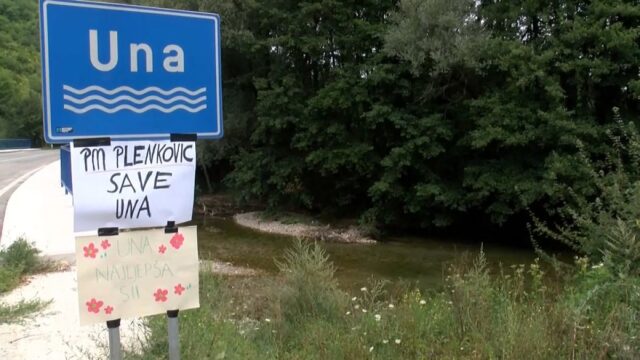The supervisory authority is investigating the official who issued the construction permit for a private mini power plant at the source of the Una. For days, environmentalists had protested against the power plant in the Natura 2000 protected area with notable support.
After several days of protests against the construction of a mini hydroelectric plant at the source of the Una rivercriminal charges have been filed against the official who issued the construction permit.
The state supervisory authority accuses the official of having acted illegally because the investor did not comply with the environmental protection procedure. Due to incomplete documents, the building permits were illegal.
The private Donja Suvaja hydroelectric power station is located in a nature reserve that includes the source of the Una River.
Marin Živković, deputy of the opposition left-wing green party “Možemo!” (German: Podemos!), accused the authorities of failure: “In our opinion, this is a failure of the authorities to granting permissions in a way that is simply unacceptable. We hope that the supervisory authority will order a ban on further construction works,” Živković explained.
Popular reaction to the private benefit of a protected environment
The well-known Croatian musician and singer Darko Rundek gave a concert for the campaign “Let’s save the Blue Heart of Europe.” He urged all people to join the effort to save this river. “I think this is a case of blindness without no sensitivity, it’s pure stupidity and greed“says Rundek.
The Una is one of the last unspoilt river landscapes in Europe and is popular with fishermen and water sports enthusiasts. Dunja Delić Božić, a protester from Zagreb, raves about the beauty of nature: “I don’t want my son to grow up with my stories about the Una River, which used to flow here and was a wonderful river full of life. I want my son to experience this personally.”
Most of the more than 200 kilometers of the Una route, in Bosnia and Herzegovina, have been declared a national park. The Una spring in Croatia has been protected as a hydrological natural monument since 1968 and is now part of the red Natura 2000.







